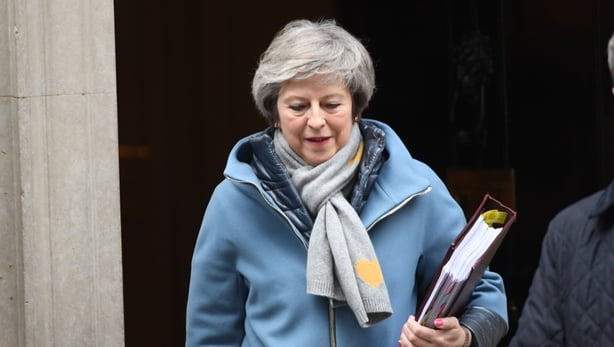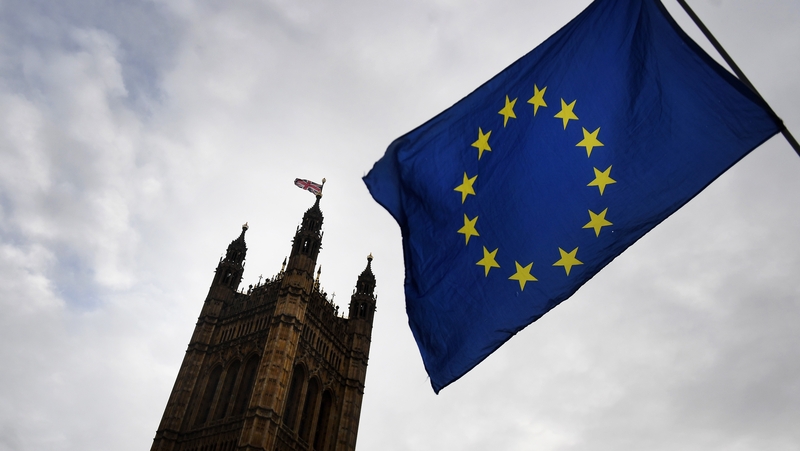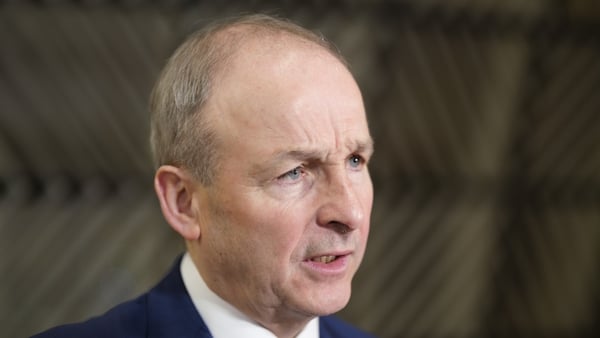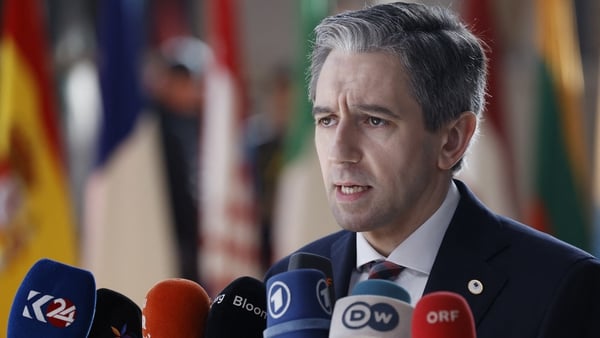The EU has issued a letter this morning to the British government spelling out a series of reassurances on the Irish backstop.
The letter, issued jointly by the presidents of the European Council and Commission, stresses that the backstop is not the EU’s preferred solution to avoiding a hard border, that it does not undermine the Good Friday Agreement, nor is it part of any covert attempt by the EU to "annex" Northern Ireland.
However, the letter insists that there can be no renegotiation of the backstop.
RTÉ News understands the EU has also resisted a request from the British government to agree that the backstop would only take effect for one year.
Downing Street also released a letter from Theresa May to the EU chiefs as part of a choreographed exchange, requesting further assurances on the backstop.
Mrs May wrote: "The clarifications and undertakings proposed in this letter are consistent with the letter and spirit of the deal we have reached, but would be further reassurance that the fears that some hold on both sides are misplaced."
The EU letter has been carefully drafted following a request by the British Prime Minister ahead of tomorrow’s vote in the House of Commons on the Withdrawal Agreement.
Mrs May has sought further reassurances and clarifications on the backstop in a frantic bid to convince Conservative MPs to back the treaty.
However, RTÉ News understands that there remains some distance between Brussels and London as to how best to deal with the backstop issue, to which the DUP and large parts of the Conservative Party remain bitterly opposed.
Read more:
EU letter to Theresa May in full
UK more likely to stay in EU than crash out with no deal - May
More Brexit stories
Generally speaking, according to well-placed sources, the UK side has concentrated on dates by which the future relationship would supersede the backstop, whereas the EU side has pressed London instead on the quality of that relationship, and how it would specifically deal with the issues – such as customs and regulatory alignment – that would arise when trying to avoid a hard border on the island of Ireland.
It is understood that Jean Claude Juncker will spell out that the European Commission - which will be mandated to carry out the future trade negotiations with the UK on behalf of member states - will do its utmost to make sure the talks run quickly and smoothly.
However, it was made clear the EU cannot guarantee what the outcome of those trade negotiations will be in terms of substance.
In general, the letter from the EU side sets out in considerable length what the backstop is for, and how the EU will do its best to avoid it coming into effect.
It reaffirms that the backstop is not a "trap" to keep the UK in a permanent customs union and that it will not undermine the Good Friday Agreement.
However, the text largely re-emphasises what was already agreed by the EU27 leaders at a summit in December.

Mrs May is to make a statement to the House of Commons at 3.30pm before MPs continue their debate on her deal, Sky News has reported.
Her statement is expected to focus on new assurances from the EU about the backstop.
It is understood that the British letter will fall short of an EU demand that London spell out exactly how the future trade relationship would specifically avoid the conditions that would give rise to a hard border on the island of Ireland.
Instead, the letter is expected to emphasise that Britain is determined to avoid the backstop and that it is committed to finding alternative solutions so that the backstop does not ever have to come into effect.
During December’s summit Mrs May sought a Joint Interpretative Statement from the EU on the terms under which the backstop would apply.
It is understood she sought a promise that both sides would commit to sharing an "absolute determination" to concluding a trade agreement by the end of 2020, or 2021 at the latest, as a way of avoiding the need for a backstop.
However, at the time EU leaders rejected the idea of a Joint Interpretative Statement, which was seen as an inappropriate legal instrument.
It is understood that the phrase "absolute determination" will not be included in the EU’s letter to London.
The exchange letters will be seen by observers as falling well short of what Mrs May needs in order to convince enough party members to support the Withdrawal Agreement in tomorrow's eagerly awaited meaningful vote in the House of Commons.
Additional reporting: Reuters






